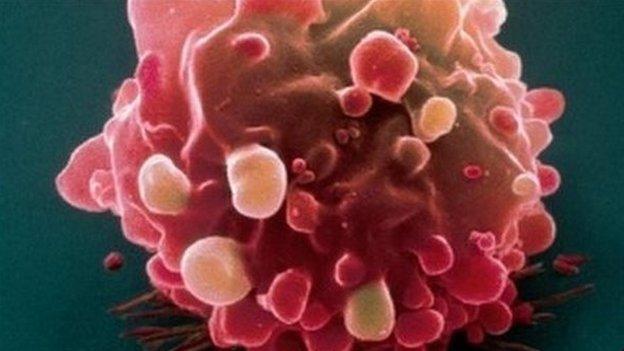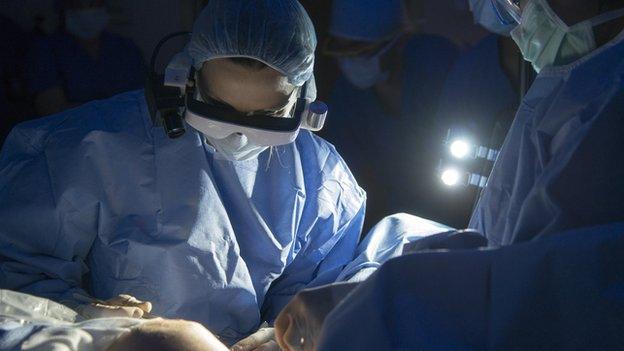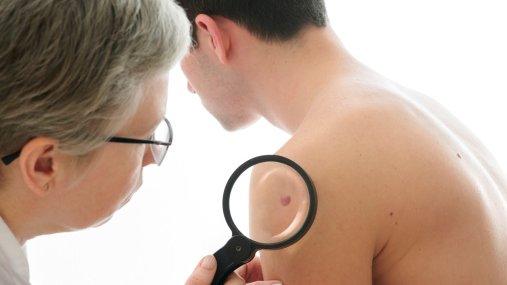Skin cancer cases in Scotland rise by almost a third
- Published

The figures show a 30% increase in cases of skin cancer
Cases of skin cancer in Scotland have increased by more than 30% in the past decade, according to latest NHS figures.
There were 1,172 diagnoses of melanoma in 2013, making it the sixth most common form of the disease.
Lung cancer remains the most common, accounting for 17% of all cases, followed by breast cancer and colorectal cancer.
More than 31,000 people in Scotland were diagnosed with cancer in 2013.
The statistics, external from ISD Scotland found the risk of skin cancer has increased more for men - with a 38% rise during the past ten years, compared to 22% increase over the same period for women.
Scotland's chief medical officer Dr Catherine Calderwood urged people to take more care in the sun and to contact their GP if they have any cause for concern.
She said: "The best way to cut your chances of getting melanoma is to reduce your exposure to the sun and avoid using sunbeds.
"The most common symptom of melanoma is a new mole or a change in the appearance of an existing mole.
"Melanomas are usually irregular in shape and contain more than one colour. They can be larger than usual moles and might itch or bleed."
Overall, during the past ten years cancer incidence has fallen in men but increased in women.
The total number of cancers diagnosed has also risen but this is likely to be because of the ageing population.
Survival rates
But survival rates have improved. It is estimated that there are 176,000 people in Scotland who have been diagnosed with cancer during the past 20 years and who are still alive - approximately 3% of the population.
Gregor McNie, senior public affairs manager for Cancer Research UK, said the figures showed the importance of research.
He said: "These statistics reinforce the vital need for more research to better prevent, treat and cure all types of cancer.
"But there is good news. Cancer is no longer the death sentence it used to be. Cancer survival has doubled since the 1970s and Cancer Research UK's work has been at the heart of that progress."
It is estimated two in five people in Scotland will be diagnosed with cancer during their lifetime.
- Published6 January 2015

- Published29 April 2014

- Published21 April 2014

- Published13 April 2014

- Published30 March 2014

- Published21 August 2013
